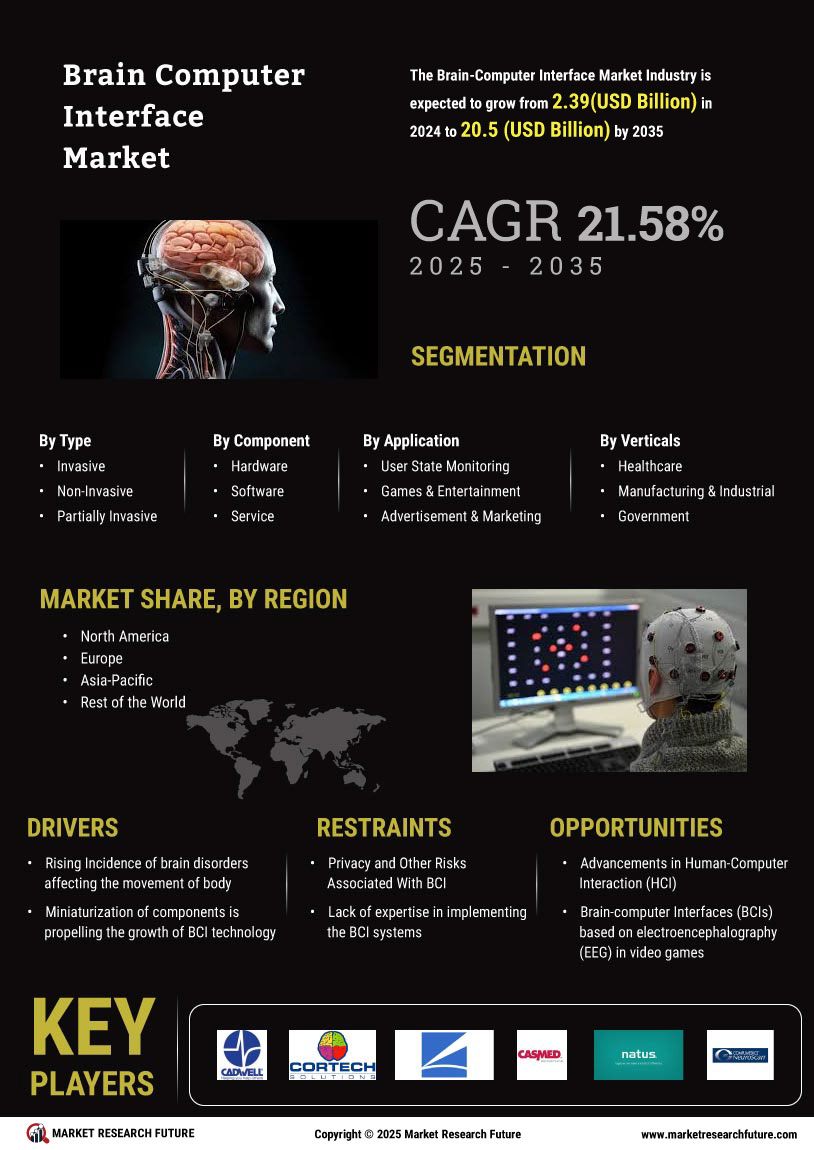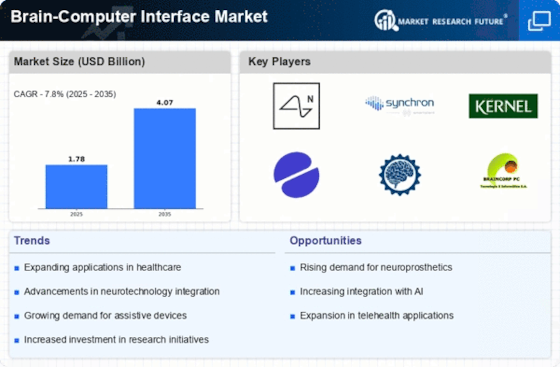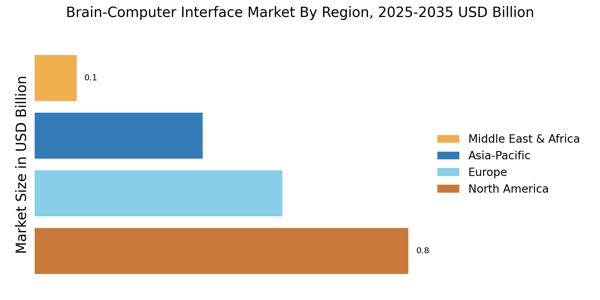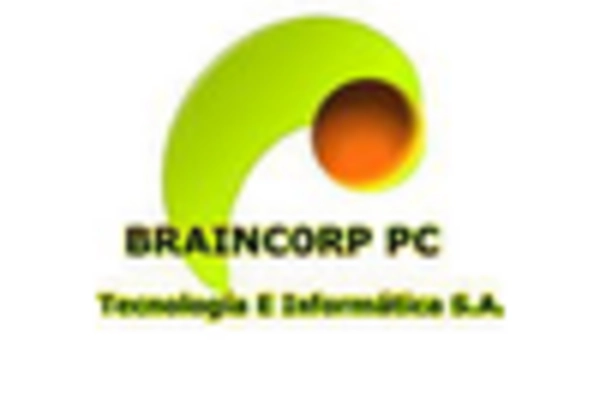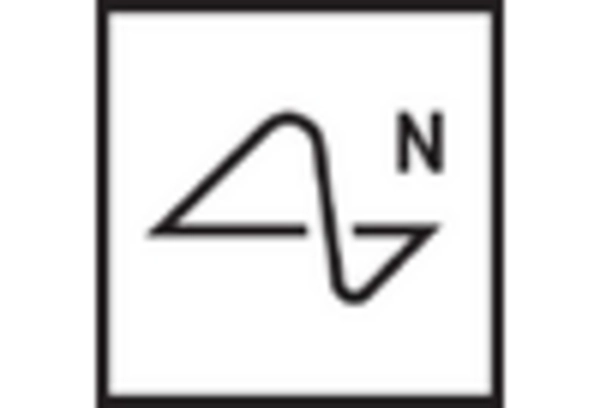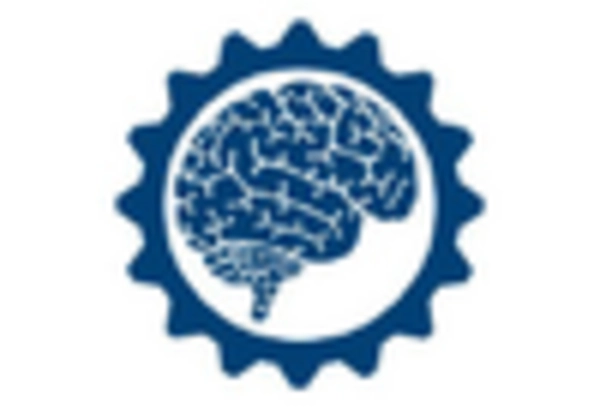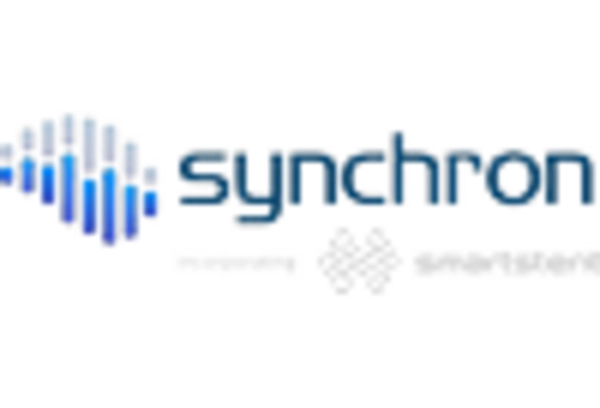Advancements in Neurotechnology
Recent advancements in neurotechnology are significantly influencing the Brain Computer Interface Market. Innovations in signal processing, machine learning, and miniaturization of devices have improved the accuracy and usability of brain-computer interfaces. For instance, the development of non-invasive techniques, such as EEG-based systems, has made it easier for users to interact with technology without the need for surgical implants. This trend is supported by research indicating that the neurotechnology sector is expected to reach a valuation of several billion dollars by 2027. As these technologies continue to evolve, they are likely to enhance the functionality and accessibility of Brain Computer Interfaces, thereby expanding their applications across various sectors, including healthcare, gaming, and education.
Ethical and Regulatory Developments
Ethical and regulatory considerations are increasingly shaping the landscape of the Brain Computer Interface Market. As the technology advances, concerns regarding privacy, consent, and the potential for misuse are becoming more pronounced. Regulatory bodies are beginning to establish guidelines to ensure the responsible development and deployment of brain-computer interfaces. This regulatory framework is essential for fostering public trust and encouraging adoption. Moreover, ethical discussions surrounding the implications of brain-computer interfaces on identity and autonomy are prompting stakeholders to engage in dialogue about best practices. The Brain Computer Interface Market must navigate these complexities to ensure that innovations align with societal values and ethical standards.
Growing Interest in Neuroergonomics
The concept of neuroergonomics, which focuses on the interaction between the brain and technology, is gaining traction within the Brain Computer Interface Market. As organizations seek to optimize human performance and enhance user experience, the integration of brain-computer interfaces into workplace environments is becoming more prevalent. This trend is supported by studies indicating that brain-computer interfaces can improve productivity and reduce cognitive load. Consequently, companies are exploring the implementation of these technologies to create more efficient workspaces. The Brain Computer Interface Market stands to benefit from this growing interest, as businesses recognize the potential of these interfaces to enhance employee well-being and performance.
Rising Demand for Assistive Technologies
The increasing prevalence of neurological disorders and disabilities has led to a rising demand for assistive technologies, particularly in the Brain Computer Interface Market. As the population ages, the incidence of conditions such as ALS, stroke, and spinal cord injuries is expected to rise, necessitating innovative solutions for communication and mobility. The Brain Computer Interface Market is poised to address these needs by providing devices that enable users to control computers and other devices through brain activity. This demand is reflected in market projections, which indicate a compound annual growth rate of over 15% in the coming years. Such growth underscores the potential for Brain Computer Interfaces to transform the lives of individuals with disabilities, enhancing their independence and quality of life.
Increased Investment in Research and Development
Investment in research and development is a critical driver for the Brain Computer Interface Market. Governments and private entities are increasingly funding projects aimed at exploring the potential of brain-computer interfaces in various applications. This influx of capital is fostering innovation and accelerating the development of new technologies. For example, funding initiatives have led to breakthroughs in brain signal decoding and interface design, which are essential for creating more effective and user-friendly devices. The Brain Computer Interface Market is expected to benefit from this trend, as enhanced R&D efforts could lead to the introduction of novel products and solutions that meet the diverse needs of consumers and industries alike.
